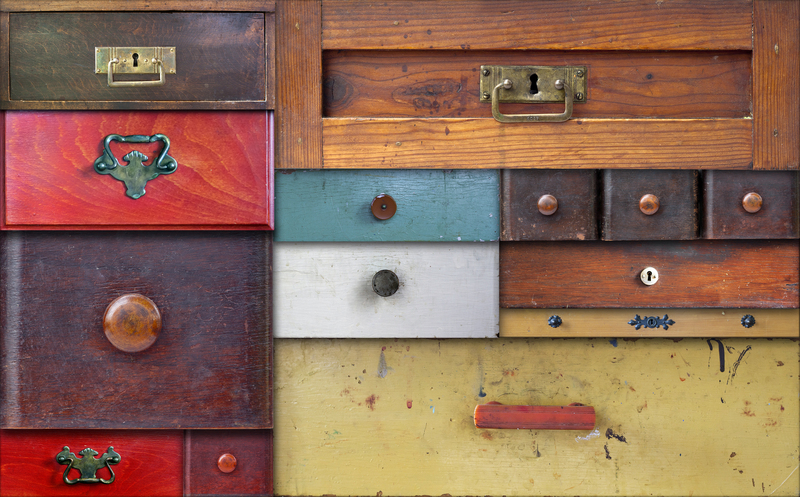Spend Less on Bulky Waste Items with These Practical Tips
Are you dreading the cost of disposing of large appliances, old furniture, or other oversized rubbish? Bulky waste items--also known as large household waste or unwanted large items--can be some of the trickiest and most expensive things to get rid of responsibly. However, with a bit of planning and some clever strategies, it's entirely possible to minimize your bulky waste expenses and even help the environment at the same time.
In this comprehensive guide, we'll walk you through proven tips and actionable advice on how to spend less on disposing of large items while keeping your conscience clear. Whether you're clearing out after a house move, upgrading decor, or decluttering, you'll find money-saving methods that are easy to implement.

Understanding Bulky Waste Items
First, let's clarify what counts as bulky waste. These are items that are too large or heavy to fit into your regular wheelie bin or trash can. Examples include:
- Old sofas and armchairs
- Beds, mattresses, and wardrobes
- White goods (e.g., fridges, freezers, washing machines)
- Large electronics
- Garden furniture and barbeques
- Fitness equipment and bicycles
- DIY renovation debris
Local councils, private contractors, and environmental companies often charge for the collection and disposal of these large trash items. But paying a premium isn't your only option. Ready to cut your bulky waste costs? Read on for our expert tips.
Top Tips to Spend Less on Bulky Waste Disposal
1. Tap Into Free Council Collections
Many local authorities offer a limited number of free bulky waste collections per year. Before hiring a private company, check your council's website to see if you're eligible:
- Some councils provide residents with one or two complimentary collections annually
- Others may offer discounts for benefit recipients, pensioners, or those with disabilities
- Requesting a pickup online is often straightforward and could save you significant money
2. Make the Most of Charity Donations
Donating usable items saves you disposal costs and benefits others. Many charities will collect large furniture and working appliances for free if they're in good condition. Consider:
- National organizations like the British Heart Foundation, Salvation Army, or local thrift shops
- Scheduling a pickup at your convenience
- Ensuring items are clean and not heavily damaged
3. Sell or Give Away Bulky Waste Items Online
One person's bulky waste is another's treasure. Make use of online platforms to reduce bulky waste costs--or even earn a profit!
- List large items on Facebook Marketplace, Gumtree, Craigslist, or Freecycle
- Include clear photos, detailed descriptions, and measurements
- Offer items as "collection only" to avoid hauling heavy goods yourself
4. Break Down Bulky Items to Save on Fees
Most landfill and recycling centers charge by the item or volume. If you dismantle large furniture or appliances, you can often fit more into your car or bins, meaning:
- Fewer trips to the recycling center
- Lower fees for each load
- Easier recycling if you sort out wood, metal, and plastics
5. Arrange a Bulky Waste Collection with Your Neighbors
Many waste removal companies charge a flat callout fee, then variable rates by item. By coordinating pickups with neighbors:
- You can split the callout fee
- Save on transportation costs and emissions
- Make it easier for waste companies to offer better group rates
6. Rent a Van and Self-Dispose for Less
If you have several items or are helping out multiple households, consider renting a van for a few hours. Self-disposing at the local household waste recycling center can be far cheaper than hiring professionals, especially if you:
- Sort items into recyclable categories ahead of time
- Check for any restrictions on commercial vehicles
- Bring required proof of residency if needed
7. Use Pay-As-You-Go Man & Van Services
On-demand "man and van" services offer flexible collection times and can be more affordable for single large items than traditional skip hire. Tips for cutting costs:
- Compare quotes across multiple providers
- Ask about discounts for multiple items
- Book midweek or off-peak hours for cheaper rates
8. Avoid Skip Hire Unless Absolutely Necessary
Skips are convenient but not always cost-effective for large but limited quantities of waste. Before booking:
- Estimate your volume--skips are best for ongoing renovations or very large clearances
- Consider sharing a skip with neighbors to split the cost
- Remember that skips often exclude certain types of waste (e.g., electronics, fridges)
Advanced Tricks to Spend Even Less on Bulky Waste Disposal
Leverage Social Media and Community Groups
Local Buy Nothing groups, neighborhood apps (like Nextdoor), and community bulletin boards are effective places to offload unwanted large items for free. Why pay for disposal when someone else will collect it directly from your home?
Plan Bulky Waste Removal During Council "Amnesty" Periods
Some municipalities hold free "bulky waste amnesty" days where residents can dispose of large articles without incurring charges. These events:
- Are often held annually or quarterly
- Promote recycling and responsible disposal
- Attract charity collections or upcycling groups
Explore Local Reuse & Upcycling Projects
Nonprofits and eco-friendly startups sometimes offer bulky waste collection for recycling. Items are repaired, upcycled, or stripped for parts--lessening your disposal burden and helping the planet.
- Contact local repair cafes, upcycling workshops, or college art programs
- Some may even pay a small fee for certain items
Swap or Barter in Your Community
Why not try bartering your old items for services you need? For example:
- Trade a working appliance for gardening or handy work
- Swap furniture for moving help
- Organize a local swap event--everyone benefits
Check Manufacturer & Retailer Take-Back Programs
Some appliance retailers and furniture stores offer old item removal when you purchase new goods. Benefits include:
- Disposal in an environmentally responsible way
- Often included in the delivery or installation fee
- Saves you the trouble of arranging separate collection
Key Takeaways: How to Reduce Bulky Waste Expenses
- Research free and low-cost local council bulky item collection services
- Donate, sell, or give away large unwanted items directly to reduce your costs
- Break down and sort materials to fit more into each disposal load
- Coordinate with neighbors for shared pickups and discounts
- Seek out community events, amnesty days, and charity programs for extra savings
- Explore online, social, and barter platforms to make your unwanted bulky goods someone else's solution
Environmental Benefits of Cost-Effective Bulky Waste Disposal
Saving money isn't the only reason to rethink your approach to large trash. When you spend less on bulky waste disposal, you also:
- Keep valuable materials out of landfills
- Support charities, reuse, and recycling initiatives
- Reduce transportation emissions by minimizing single-item pick-ups
- Strengthen local communities through sharing and bartering

FAQs: Cutting Bulky Waste Costs
Can I just leave bulky items out on the street?
No. Most municipalities impose fines for illegal dumping. Always use approved collection services or donation channels.
What should I do if my large waste items contain electronics?
Check your council's rules--electronics often require special handling and should never go to landfill. Many recycling centers accept electronic bulky items for free.
Is it cheaper to hire a skip for bulky rubbish?
Skips can be cost-effective for very large clearances, but alternative methods are usually cheaper for only a few bulky items.
How do I find legal, licensed waste removal providers?
Request a copy of their waste carrier license and check reviews online. Never use unlicensed operators--you could be fined if your rubbish is fly-tipped.
Conclusion: Get Rid of Bulky Waste Items Without Breaking the Bank
Eliminating unwanted large items from your home doesn't have to be costly or complicated. By taking advantage of free or low-cost large waste removal options, donating or selling usable goods, and coordinating disposal with your community, you can save money, help others, and reduce your environmental impact.
Start planning today--review your council's guidelines, connect with local charities and community networks, and use the strategies outlined in this guide. With a little effort, you'll spend less on bulky waste disposal and enjoy a clutter-free, eco-friendlier home.
Ready to spend less and help the planet? Put these practical tips to work the next time you need to get rid of bulky waste items!
